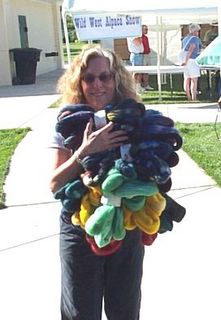Throughout our HD 4 class, I have had the tendency to think that each new item covered was the most pervasive influence on a child, for both good and bad. Peers, the media, school, the community all hold powerful influences on how a child will become an adult. When I read through this discussion topic earlier in the week, I decided I really better ponder it a bit, since each choice I might make could have strong arguments.
I concluded that parents still are the most influential item on children today. First, the child is exposed primarily to parents in early infancy, toddlerhood and prior to moving out into the world at either the preschool stage or in kindergarten. Strong bonding to the parent, or a lack thereof, has been proven to affect a whole host of other behaviors including whether a child does well in school and is even cited as a predictor of later criminal activity.
Although peers become very important influences in later childhood, while the child is still very young and mostly non-mobile, it is the parents that select what peer interaction a child may or may not have. Parents who choose wisely can enhance that experience, while negligent parents may allow their child to begin forming dangerous attachments to peer groups early on. Once again, parents are setting the tone that will affect what kind of adult a child becomes.
Media is a dominant force in almost any child's life. Even those children raised without TV are exposed to billboards and bus bench ads while riding in the car! Parents can do a lot of good in delaying and/or limiting exposure to TV and exercise control over when and whether a child has access to the Internet. More importantly though, parents who start with an open channel of communication can discuss the media images that their children meet along the way and instill values in their children as well as give them critical thinking skills.
Most children in the US attend school, which opens up a new world of influence and also serves as a conduit linking the child to the greater culture. School can be a very negative experience for many children. The examples in Kotlowitz's book show many of these negative consequences as well as a few positive ones. Parents do well to monitor their child's schooling through parent conferences and unplanned visits to the classroom. Parents also have more options than ever before to select a school that best suits their own child's learning needs.
Before it seems that I am painting too ideal a picture, I want to add that I am aware that there are many very ineffectual and negligent parents out there. However, they have been as influential in the lives of their children as the 'good' parents. I spent several years doing legal pleadings for my county's Child Protective Services department, making me well aware of the emotional and physical toll the worst parents had inflicted on their children. Those children needed lots of counseling services, yet still had worse odds for ultimate success in adult life. I also taught within the county jail, and observed that many of the young criminals came from a family life where parents hadn't valued them finishing their education and hadn't instilled in them a sense of right from wrong or a strong work ethic. Once again, what the parents had passed along determined much of what course the child took as they became an adult.
Subscribe to:
Post Comments (Atom)

1 comment:
Thanks for your comment on my blog. I'm flattered. I always liked to read yours because you have a very linear and clear way of thinking and expressing your ideas. It helped me expand and deepen my knowledge...it was inspiring. Thank you so much for all your contributions to this class. And the best of luck in all your future endeavors.
Post a Comment